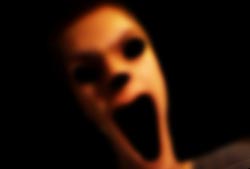Ghost Hunters Sound Credible with a Little 'Science'

Get the world’s most fascinating discoveries delivered straight to your inbox.
You are now subscribed
Your newsletter sign-up was successful
Want to add more newsletters?

Delivered Daily
Daily Newsletter
Sign up for the latest discoveries, groundbreaking research and fascinating breakthroughs that impact you and the wider world direct to your inbox.

Once a week
Life's Little Mysteries
Feed your curiosity with an exclusive mystery every week, solved with science and delivered direct to your inbox before it's seen anywhere else.

Once a week
How It Works
Sign up to our free science & technology newsletter for your weekly fix of fascinating articles, quick quizzes, amazing images, and more

Delivered daily
Space.com Newsletter
Breaking space news, the latest updates on rocket launches, skywatching events and more!

Once a month
Watch This Space
Sign up to our monthly entertainment newsletter to keep up with all our coverage of the latest sci-fi and space movies, tv shows, games and books.

Once a week
Night Sky This Week
Discover this week's must-see night sky events, moon phases, and stunning astrophotos. Sign up for our skywatching newsletter and explore the universe with us!
Join the club
Get full access to premium articles, exclusive features and a growing list of member rewards.
Fans of paranormal reality TV shows like "Ghost Hunters" and "Ghost Adventures" are treated to an array of technical jargon and references to fancy instruments — ion generators, electromagnetic field detectors and video goggles with built-in speech-synthesizers that allegedly can sense spirits.
This sprinkling of shady science can lend undue credibility to paranormal investigators, a researcher found.
For his study, Paul Brewer, a professor of communication at the University of Delaware, had a few hundred participants read one of three different versions of a newspaper article about a ghost hunter. (A fourth control group read an unrelated story.)
One version — the jargon-peppered "scientific" version — emphasized the investigator's "meticulous approach" and mentioned his technological devices. A supernatural version highlighted the investigator's strange childhood experiences and his "openness to nonscientific methods," such as communicating with spirits through a medium. A third version looked identical to the scientific one, except for an extra paragraph that quoted a professor debunking the ghost hunter's expertise and comparing his investigations to "old-time medicine shows."
The participants then filled out a questionnaire. Compared with the other groups, those who read the first scientific-sounding version of the article were more likely to answer that they believed in the paranormal and haunted houses. They also were more likely to characterize the investigators' work as scientific and credible, Brewer found.
"One key finding of this study is that media messages invoking the trappings of science can construct scientific authority even for pursuits regarded by mainstream science as pseudoscientific," Brewer wrote in his study published online Sept. 7 in the journal Science Communication.
But Brewer found that a rebuttal from a reputable source can undermine such "trappings of science" that make ghost hunters sound convincing. The participants who read the third version of the story — the one that sounded scientific but also quoted a skeptic — were less likely to see paranormal investigators as credible than those who read the first scientific version, the study found.
Get the world’s most fascinating discoveries delivered straight to your inbox.
Brewer tested whether different variables, such as age, gender, religion and TV habits, influenced the results. He found that overall television viewing and paranormal reality television viewing can predict beliefs about paranormal investigators and phenomena.
"Specifically, higher levels of viewing paranormal reality television predicted greater belief that paranormal investigators are scientific and credible, as well as greater belief in paranormal phenomena," Brewer wrote.
Follow LiveScience on Twitter @livescience. We're also on Facebook & Google+.

 Live Science Plus
Live Science Plus










